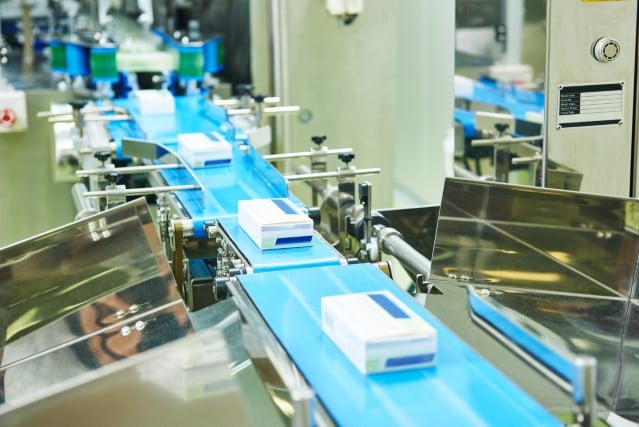Overview
On the 24th December 2020, a Trade and Cooperation Agreement (TCA) was struck between the EU and UK. This is welcomed by the pharmaceutical industry as it helps with maintaining continuity of supply and flow of medicinal products as well as other products between EU and the UK.
From a high-level perspective there will be significant changes to customs procedures which came into effect from the 01st January 2021. The most catastrophic disruption of a no deal scenario has been avoided and companies can now begin to invest in long-term future supply plans. One of the challenges companies now face is that they have had little time to adjust to the conditions of the deal which may cause initial delays and errors in certification, importation/exportation documentation, and transportation of medical products between the UK and EU and vice versa. The trade deal has significant consequences for the movement of medicinal products both to and from the EU. Let us have a look at these in more detail.
UK companies supplying product to the EU
The three primary areas where businesses should keep an eye out for changes include Transportation and Shipping, Regulatory and Quality and Compliance. Here is what you need to know.
Shipments of medicinal products from the UK to the EU no longer fall under the free movement of goods and therefore are categorised as a cross-border activity. There will be a requirement for additional paperwork such as customs declarations. Companies may need to use brokerage service providers which may result in an increased end user price of the product. Fortunately, the deal means there will be no tariffs placed on any products. UK companies will need to engage EU businesses to act as the Importer of Record (IoR) for products moving from the UK to the EU. It will be extremely important to ensure the correct paperwork is in order for shipments going forward, especially for products with a very short shelf that are being transport under strict time and temperature constraints.
From a regulatory perspective, there are two important things to note. Marketing Authorisation (MA) holders, if held in the UK, will have to be transferred to an EU or EEA country. Secondly, for products that are being imported from the UK to the EU, the EU site of batch release must be named on the MA.
Each batch of UK manufactured drug product intended for the EU/EEA market will need to be imported to a site of physical importation and released by a QP operating under an MIA within the EU/EEA. Until a Mutual Recognition Agreement is in place between the EU and UK, each batch of finished medicinal product must undergo, in an EU Member State, a full qualitative analysis, a quantitative analysis of all the active substances. Pharmacovigilance of drug products placed on the EU/EEA market will need to be managed from a location within the EU/EEA. This means the Qualified Person Responsible for Pharmacovigilance (QPPV) must also reside and operate in the EU/EEA from 1st January 2021.
EU companies supplying product to the UK
Transportation and shipping changes for EU companies supplying product to the UK looks similar to what was mentioned above with additional paperwork including customs declarations being the critical requirement going forward.
If EU companies wish to conduct clinical trials in the UK, the UK regulatory authority will require that exported product to the UK have a certification by a UK QP before it can be administered to a patient (1).
If you are the Sponsor of a UK clinical trial using IMPs imported from into the UK from countries on the ‘approved country for import’ list (initially, all EU and EEA countries) you will require a UK Manufacturing and Import Authorisation (MIA (IMP)) holder to put in place the assurance system to check these IMPs have been certified by a Qualified Person (QP) in a listed country, before being they are used in a clinical trial setting (1). IMPs will not require recertification, however. A wholesaler may only import certified medicines from the EU if the appropriate checks are made by the UK Responsible Person (RP). The RP must reside in the UK, as well as a number of other factors which can be found on the MHRA website (2). It is therefore important to engage with the right personnel in order to successfully put in place the infrastructure necessary to continue to supply medicinal products between the EU and the UK.
For more information on QP batch certification and importation, Importer of Record (IoR) and Responsible Person services, please contact the author Robert Hanly at rhanly@hitech-health.com or email info@hitech-health.com.
Contact us to learn more about HiTech Health.
Recent News
HiTech Health Authorised by the MHRA to Perform Batch Importation and Certification of Investigational Medicinal Products (IMPs)
HiTech Health today announced that the company has been granted a Manufacturer’s/Importation Authorisation (MIA) for Investigational Medicinal Products (IMP) by the Medicines and Healthcare Products Regulatory Agency (MHRA). The company is now authorised to perform...
Cell Therapy: Points to Consider When Choosing a CDMO
At the Advanced Therapies Congress 2024 in London, Amina Al-Mossawi, a Qualified Person (QP) at Hitech Health, delivered vital insights on the crucial considerations for biotech firms when selecting a Contract Development and Manufacturing Organisation (CDMO). With...
Accelerating Regenerative Medicine : CCRM Australia and HiTech Health Announce Strategic Partnership
Hitech Health is delighted to announce its latest partnership with CCRM Australia, a not-for-profit organisation supporting regenerative medicine commercialisation in the Australian market. CCRM Australia works to accelerate the commercialisation of regenerative...
Stay Up To Date
Connect with us to receive the latest HiTech Health and industry updates.

